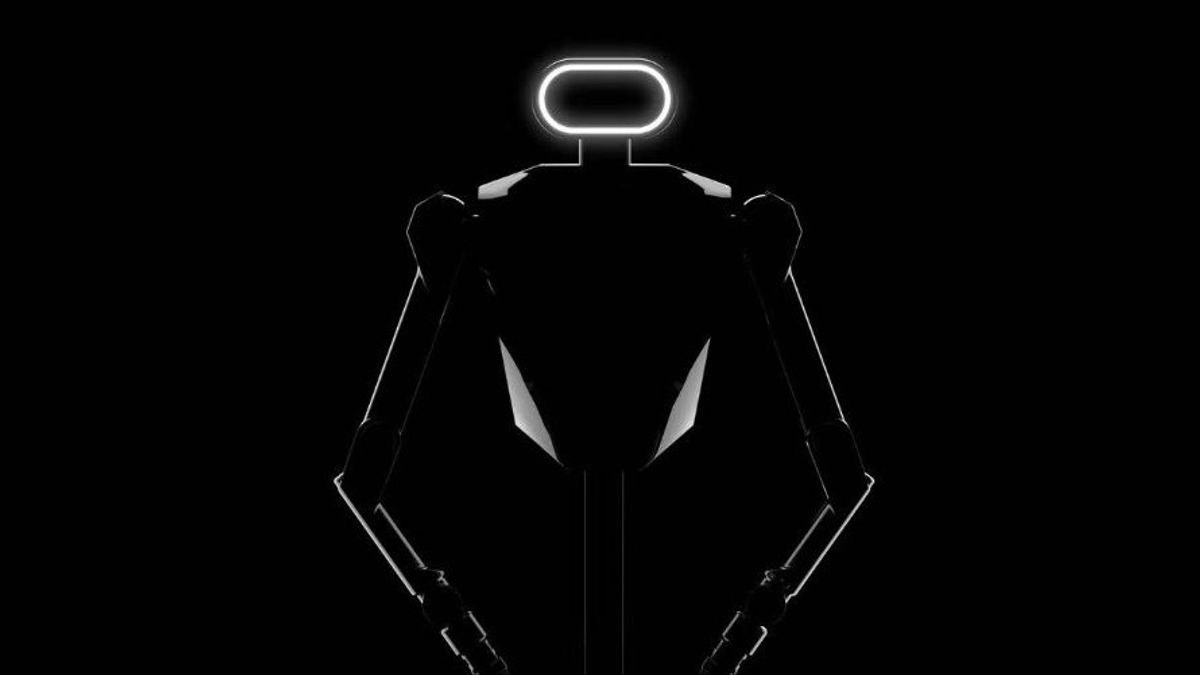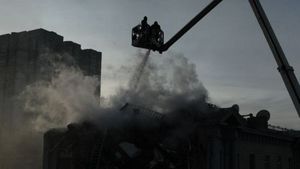JAKARTA - As China seeks to take the lead in the development of humanoid robots, its supply chain showcases cheaper and more innovative components at the World Robot Conference in Beijing. However, some executives warn that the industry still needs to increase the reliability of its products.
The Wisson Technology (Shenzhen), known for its flexible robotic manipulators, does not depend on the motor and the 'transmission device commonly used in robotics' but uses 3D printed plastic and pneumatic-made muscles to move the robot.
This cheaper form of production allows them to set the price of their flexible robotic arm to about a tenth of the traditional robotic arm price, according to Cao Wei, an investor at Wisson through venture capital firm Lanchi Ventures, where he is a partner.
This bending technology will present robotic arms at a cost of around 10,000 yuan (Rp. 21 million), said Wisson on its website. "Wisson's bending fringes can be used in humanoids," Cao said, adding that the company has provided samples for foreign companies that make humanoid robots, without elaborating.
Yi Gang, founder of Shanghai-based Ti5 Robot, a company specializing in integrated connections, highlighted several issues he sees in robotics supply chains. "The entire supply chain still needs to address problems with product reliability," Yi said, adding that due to the level of defects, his company could only produce up to 1,000 units of products.
Harmonic equipment, which refers to machines that play an important role in motion control, is a major problem, he added.
China's robotics efforts are supported by President Xi Jinping's policy of developing "new productive forces" in technology as presented in last week's program brochures. Across China, the world's largest market for industrial robots, this increasingly sophisticated technology is changing the face of traditional industries such as manufacturing, automotive, agriculture, education, as well as health and home services.
SEE ALSO:
Gao Jiyang, a former executive director at China's autonomous vehicle startup Momenta, before founding Galaxya AI, a start-up focused on robotic and AI hardware-realing, said that increased smart driving was driving progress in robotics. "Autonomous driving means AI-plus cars, which are also a type of robot," Gao said.
When the conference ended on Sunday, August 25, China's Prime Minister, Li Qiang, said it was important to implement President Xi Jinping's guidelines on the importance of the robotic industry. "The robotic industry has great prospects and market potential," said Li, according to China's official news agency Xinhua.
Calling robots an "significant benchmark for technical innovation and high-tech manufacturing power," Li called for efforts to maintain supply chain stability and progress on the international stage. "It is important to promote the expansion and popularity of robots in areas such as industry, agriculture, and services," he said.
The English, Chinese, Japanese, Arabic, and French versions are automatically generated by the AI. So there may still be inaccuracies in translating, please always see Indonesian as our main language. (system supported by DigitalSiber.id)














